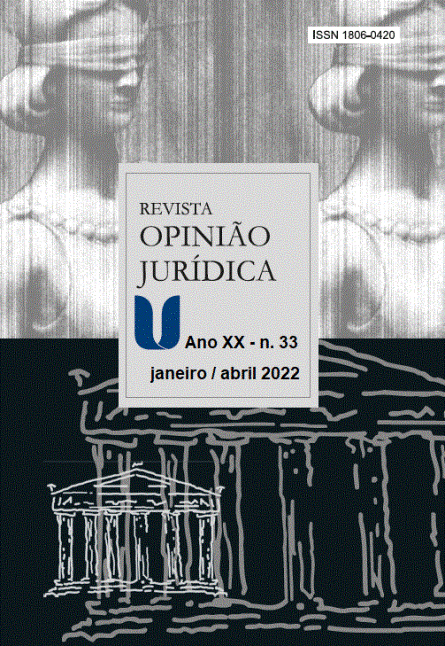MEANINGFUL ENGAGEMENT: SOUTH AFRICAN CONTRIBUTIONS TO STRUCTURAL LITIGATION IN BRAZIL
DOI:
https://doi.org/10.12662/2447-6641oj.v20i33.p165-201.2022Keywords:
Meaningful Engagement, South Africa, Structural Litigation, Structural RemediesAbstract
Objective:The purpose of this article is to analyze a structural remedy model developed by the Constitutional Court of South Africa, called Meaningful Engagement, which can minimize the impact of traditional objections to structural litigation, as it increases community participation and interinstitutional dialogue between the various actors responsible for the solution of the problem.Methodology: As a research methodology, in addition to the traditional bibliographic research around the doctrine developed on the subject, a more in-depth analysis of the two paradigmatic cases that served as the basis for the development of the South African institute, Olivia Road and Joe Slovo, was carried out.
Results: It is concluded that are intrinsic and extrinsic reasons for seeking inspiration in the Meaningful Engagement model. The South African model, by valuing institutional dialogue and public participation, mitigates the usual criticisms to structural litigation.
Contributions: From the results, it is observed that: a) in dialogic structural remedies, affected communities are treated with dignity and can influence the formulation of public policies that concern them.; b) public participation guarantees the structural injunctions transparency and, to the judges, greater technical capacity, since only with the inclusion of the social segments affected by the problem that is intended to be overcome will the judge be able to produce measures consistent with the real needs the concrete case; c) finally, public participation and institutional dialogue also collaborate to mitigate the criticisms usually made of structural processes.
Published
How to Cite
Issue
Section
License
CESSION OF COPYRIGHTS
The submission of articles to analysis for publication on Opinião Jurídica implies the author(s) transfers copyrights to Centro Universitário Christus – UNICHRISTUS for reproduction, publicizing, distribution, printing and publication, according to the Publication Norm 414R, Opin. Jur., Fortaleza, year 12, n. 16, p.1-414, Jan./Dec. 2014, costs to be bore by UNICHRISTUS, in whatever format or means that may or shall exist, in accordance to articles 49 and following of Federal Law 9.610/98.
1. In ceding copyrights, the author(s) agrees to do so in exclusivity, free of charge and for the totality of the work.
2. UNICHRISTUS may make the work, in its entirety or in parts, available for scholarly purposes, without altering its contents, except for small corrections that are deemed necessary.
3. The cession of copyrights is valid in all countries and for versions of the material in its original language or translated into a foreign language.
RESPONSIBILITY FOR THE CONTENT
By submitting an article, the author(s) declare to have sole responsibility for the content of the piece and is(are), therefore, responsible for any judicial or extrajudicial measures referring to it.
1. In case of joint authorship, all authors are considered collectively responsible, except when proved otherwise.



















